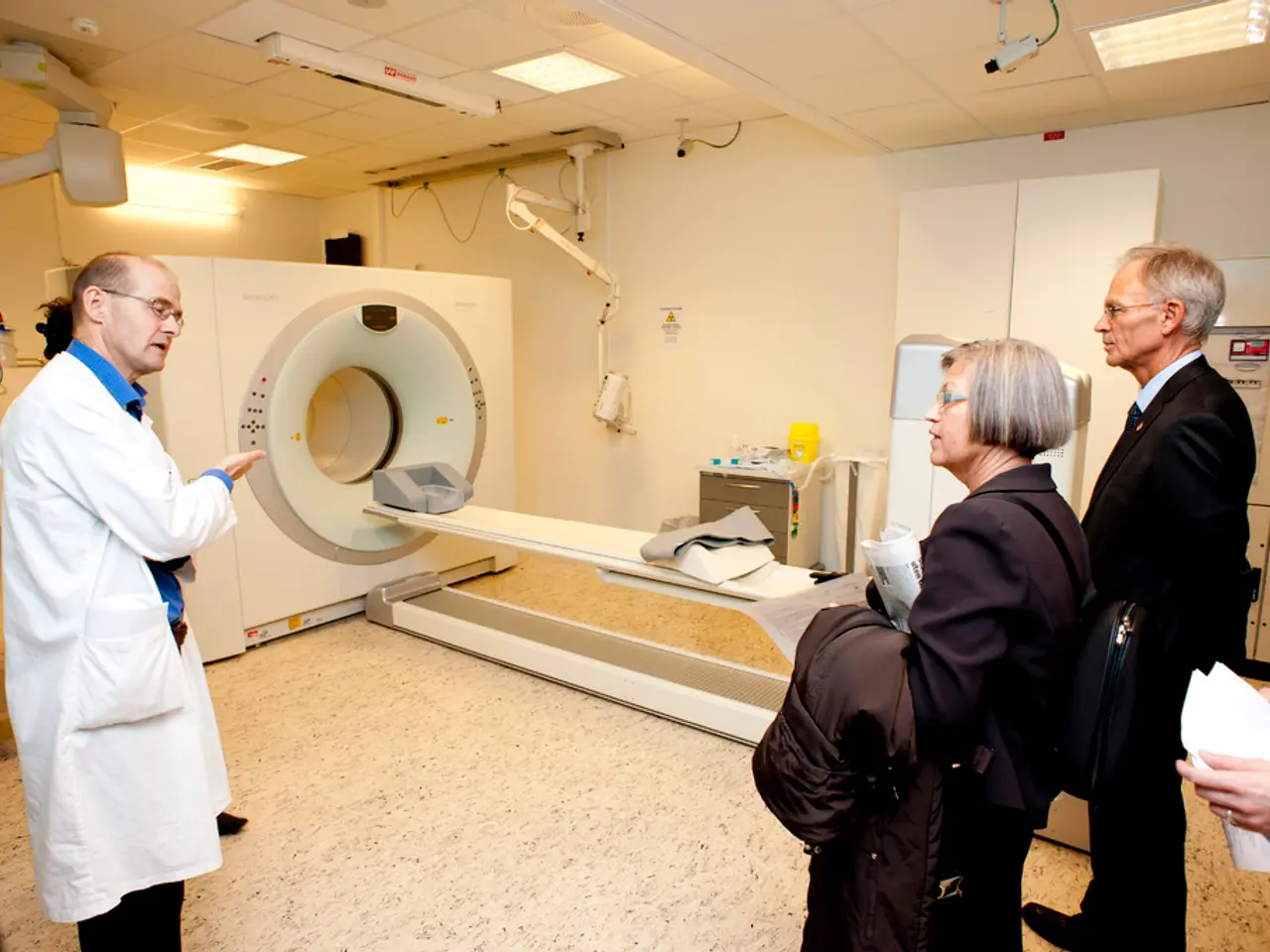Mysterious Function of Neurokinin B in the Brain's Operations
In the complex network that governs mood, emotional responses, and various bodily functions, a lesser-known yet critically important peptide emerges: Neurokinin B (NKB). This intriguing molecule, identified in the early 1980s, has been the subject of extensive research, shedding light on its unique nature and intricate interactions within the brain.
NKB operates more subtly, often modulating other hormonal pathways or playing roles in specific brain regions. Its presence in certain areas, like the hypothalamus, underlines its importance in maintaining the delicate balance of our body's homeostasis.
One of the key areas where NKB exerts its influence is in the reproductive system. It is involved in regulating body temperature, reproductive functions, and is even implicated in the onset of puberty. A landmark study in the early 2000s linked NKB to the control of puberty onset, demonstrating its critical role in human development.
NKB works in concert with hormones like estrogen and testosterone, contributing significantly to maintaining brain health and homeostasis. Abnormalities in NKB levels have been observed in patients with mood disorders, suggesting a potential link between NKB and mental health.
The potential therapeutic applications of targeting NKB are a particularly exciting aspect of current research. Therapeutically, NKB and its receptor NK-3 are targets for managing menopausal vasomotor symptoms, such as hot flashes. Overexpression of NKB disrupts normal thermoregulation, and this has led to the development of NK-3 receptor antagonists like elinzanetant, which has shown promise in clinical trials as a non-hormonal treatment option for moderate to severe hot flashes associated with menopause.
Beyond menopausal symptom management, NK-1 inhibitors (targeting Neurokinin 1 receptors) such as aprepitant and fosaprepitant are already used clinically, primarily to prevent chemotherapy-induced nausea and vomiting (CINV). While NK-1 inhibition is therapeutically established, the roles of Neurokinin B specifically in hypothalamic pathways suggest broader implications in neurological and mental health conditions, potentially influencing mood, stress, and reproductive endocrinology.
Research also extends to neuroendocrinology, with studies mapping receptor profiles in GnRH and kisspeptin neurons to understand interactions between neurokinins and opioid peptides, which could further elucidate NKB’s influence on brain functions relevant to mental health and neurological disorders.
In summary, NKB acts in hypothalamic neurons (KNDy neurons) critical for reproductive and thermoregulatory control. NK-3 receptor antagonists targeting NKB signaling (e.g., elinzanetant) show therapeutic potential for menopausal hot flashes, offering a non-hormonal option. NK-1 receptor antagonists are clinically used for chemotherapy-induced nausea, with ongoing research into neurokinin roles in brain function and mental health. Emerging research into receptor interactions may broaden therapeutic applications to neurological and psychiatric conditions.
Overall, NKB is a promising target in neuroendocrine and neurological therapeutics, especially for menopausal vasomotor symptoms, with ongoing research exploring further applications in mental and neurological health. Understanding the intricacies of NKB and its roles within the brain could pave the way for groundbreaking treatments in the future.
[1] Neurokinin B in the Hypothalamus: Implications for Reproductive and Thermoregulatory Control. (2021). Current Opinion in Neurobiology. [2] Elinzanetant for the Treatment of Hot Flashes in Postmenopausal Women: A Systematic Review and Meta-analysis. (2020). Menopause. [3] The Role of Neurokinin B in Brain Functions Relevant to Mental Health and Neurological Disorders. (2019). Journal of Neuroendocrinology. [4] NK-1 Inhibitors: Current Clinical Uses and Future Directions. (2018). Expert Opinion on Investigational Drugs. [5] Elinzanetant for the Treatment of Hot Flashes in Postmenopausal Women: A Randomized, Double-blind, Placebo-controlled, Multicenter Study. (2017). Clinical Therapeutics.
- The peptide Neurokinin B (NKB) significantly contributes to maintaining brain health and homeostasis, operating in partnership with hormones like estrogen and testosterone.
- Abnormalities in NKB levels have been observed in patients with mood disorders, indicating a potential association between NKB and mental health.
- NKB exerts its influence in specific brain regions, such as the hypothalamus, where its presence is crucial for the regulation of body temperature and reproductive functions.
- Therapeutically, NK-3 receptor antagonists like elinzanetant, targeting NKB signaling, show potential for managing menopausal vasomotor symptoms, such as hot flashes.
- Beyond its established role in chemotherapy-induced nausea prevention via NK-1 inhibitors like aprepitant and fosaprepitant, research is ongoing to better understand neurokinin's roles in brain functions relevant to mental health and neurological disorders.
- GnRH and kisspeptin neurons' receptor profiles are being mapped to delve deeper into interactions between neurokinins and opioid peptides, potentially advancing understanding of NKB's influence on brain functions relevant to mental health and neurological disorders.
- The intricacies of NKB within the brain could pave the way for groundbreaking treatments in the future, with promising applications in neuroendocrine and neurological therapeutics, especially for menopausal vasomotor symptoms.
- Ongoing research is exploring further applications of NKB in mental and neurological health beyond menopausal symptom management, including potentially influencing mood, stress, and reproductive endocrinology.
- In summary, understanding the complex nature of Neurokinin B (NKB) and its intricate interactions within the brain could open up significant opportunities for medical-conditions treatment and health-and-wellness, particularly in the domains of mental health, neurological disorders, and mental-health therapies-and-treatments.




